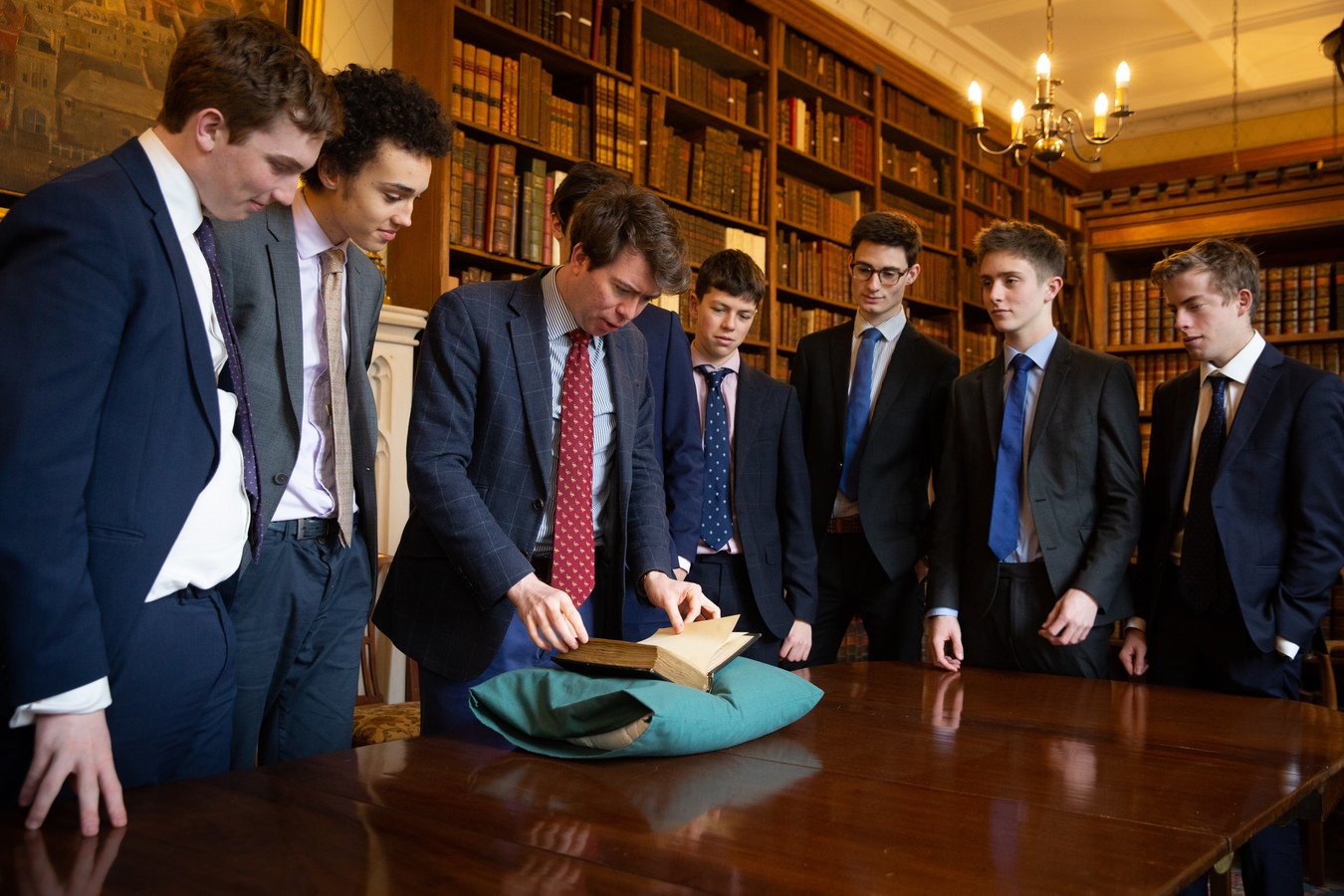
What wonders lie behind our walls?
Winchester’s libraries, archives and collections are of international significance, preserve the history of the school, and provide a unique learning resource. Artefacts acquired over the past six centuries often form the basis of a Div discussion, or are incorporated in to everyday lessons.
Winchester College Treasury
Treasury is the school’s museum of art and archaeology. Its displays include artefacts from Egypt, Greece and Rome, medieval art and early English silver, and Chinese ceramics from the Tang to Qing dynasties. They are exhibited across four galleries in the medieval Warden’s stables, converted into a museum in 2016. More detail about many of our objects is available online here.
The Treasury is open to the public free of charge every day from 2-4pm. Find out more here .
A virtual tour of the museum is available here.
Group and school visits are also welcome and enquiries should be directed to the Museum Manager.
Exhibitions
The school’s Treasury has a programme of temporary exhibitions, many of them curated by pupils, and often including objects on loan from elsewhere. Treasury is open every day 2-4pm and entry is free.
JANE AUSTEN 250 EXHIBITION: AUSTEN AND WINCHESTER
Celebrating the 250th anniversary year of Jane Austen’s birth, this exhibition explores the relationship between Austen and Winchester College, where eight of her nephews were educated between 1808 and 1830. The exhibits showcase life at Winchester College in the early nineteenth century, when her nephews were at the College and also when Austen spent the final weeks of her life living on the outskirts of the College, at No. 8 College Street.
Highlights include first editions of Austen’s novels, a copy of Catherine Maria Fanshawe’s ‘Charade’ in Austen’s hand (a rare surviving example of Austen copying out the work of another writer), a copy in her brother James Edward’s handwriting of their father’s poem ‘Venta’ on Jane’s death, and much more.
The Fellows' Library
The Fellows’ Library contains over 10,000 rare books and manuscripts. It was established at the beginning of the 15th century, and is one of a small number of ancient libraries to have survived with part of its medieval collection in situ. The library has a particularly strong collection in Biblical scholarship, English literature, cartography, and the history of science. Pupils have access to the library throughout their time at Winchester: Mathematicians, for example, are shown a first edition of Newton's Principia. Students of English have the opportunity to study the First Folio of Shakespeare’s plays. Musicians are able to see song books that once belonged to Elizabeth I.
Watch a short film on the Rare Books of the Fellows' Library
Winchester College Archives
The College Archives record the history of the school, its estates, buildings and pupils from its foundation. Uniquely, the archives are housed in the same rooms built for their storage in the 1390s, and due to the quality of that provision, remain remarkably well preserved. We welcome enquiries about all aspects of the school’s history.
Some resources can now be seen online. These include registers of pupils, the school magazine (published since 1866), and a published catalogue of the archives. For more information, to make an appointment to visit or to send an enquiry, please contact the College Archivist, Suzanne Foster.
The archives also include details of all pupils who served in the First and Second World War and a dedicated website provides information on all the pupils who fell in these two conflicts.
Moberly library
Moberly Library occupies a beautifully beamed 14th century building which formerly housed the school brewery and the Headmaster’s ballroom. This now forms the school’s main library, with a stock of around 30,000 items. In addition, the library subscribes to numerous online databases, as well as an extensive list of periodicals and their digital archives.
Moberly Library is supplemented by the school’s separate Science and Art School Libraries. Science Library covers all aspects of Science but mainly focuses on Physics, Chemistry, Biology, Medicine and Engineering and is the home of the Natural History Society (NHS) book collection. The Art School Library covers all aspects of the fine and decorative arts, architecture and also offers a variety of film and photography equipment for pupils to borrow.
For more information, please contact the Moberly librarians.
Teaching Treasures
Learning through objects
The school's extensive collections act as the springboard for discussion or to inspire more in-depth study.
These short films highlight some of the ways objects can be explored with pupils of all ages.
James Hallinan, Head of History, explores the impact of the Mongol invasions on Chinese culture through a group of ceramics from the Song (960-1279) and Yuan (1279-1368) dynasties.
Edmund Lewis, Head of Classics, discusses Greek vase imagery, with Sixth Form pupil, James.
Teaching Treasures
Sharing Expertise
The collections are a valuable resource that can be used extensively through our educational partnerships with Primary and Secondary Schools in the region.
In these short films, Dominic Rowland, Head of Maths Outreach, explains the continuing relevance of Euclid to modern mathemeticians, whilst History don, Nick Townson, uncovers the hidden meanings of the ‘misericords’ of Winchester College Chapel, which are amongst the finest woodcarvings to survive from medieval England.


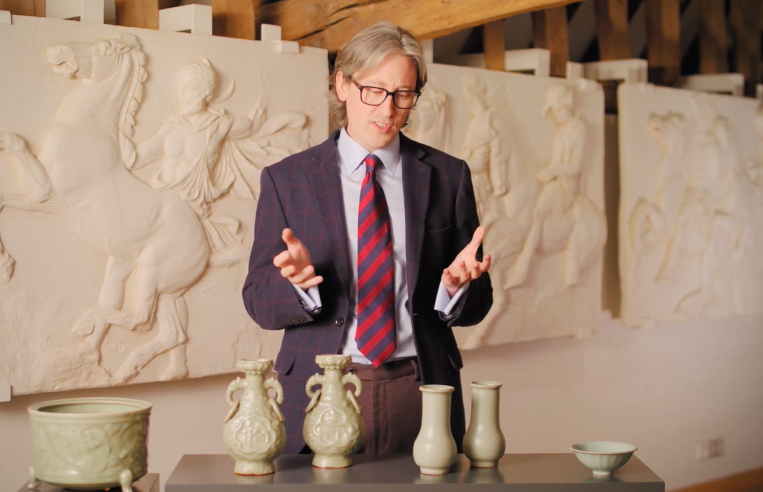
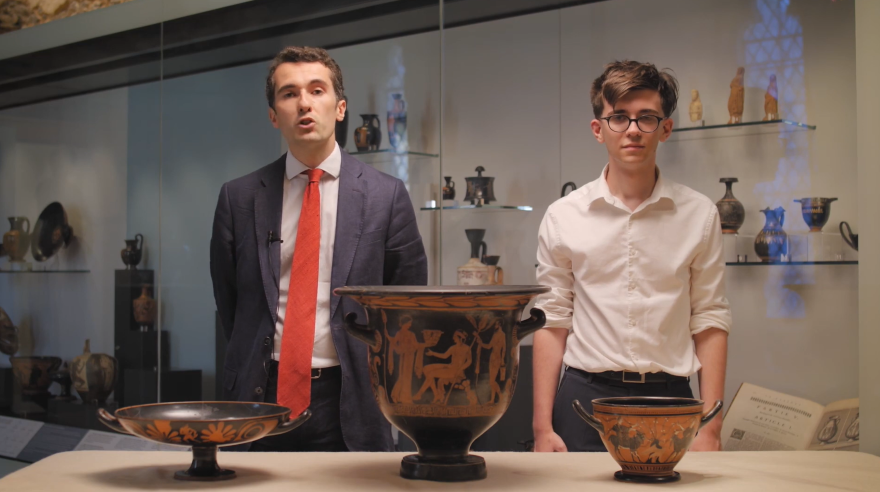
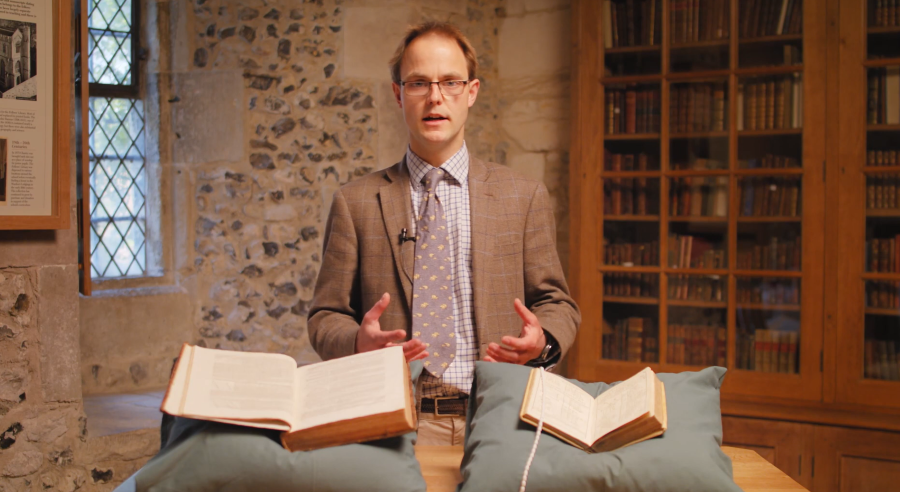
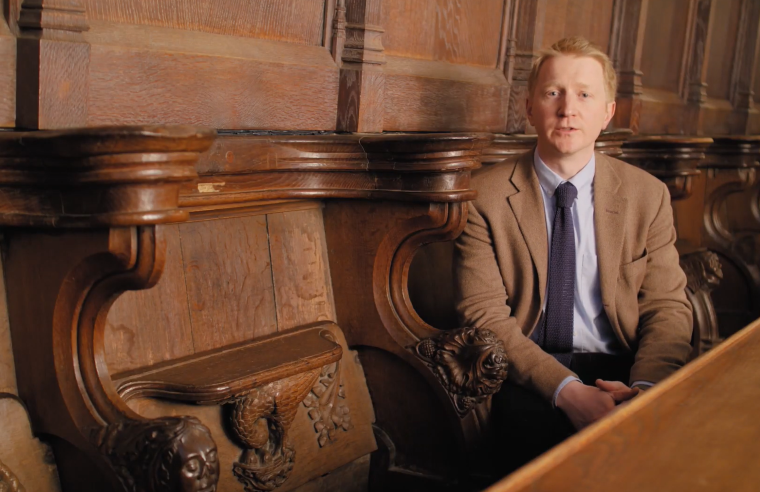
 Back to Welcome
Back to Welcome